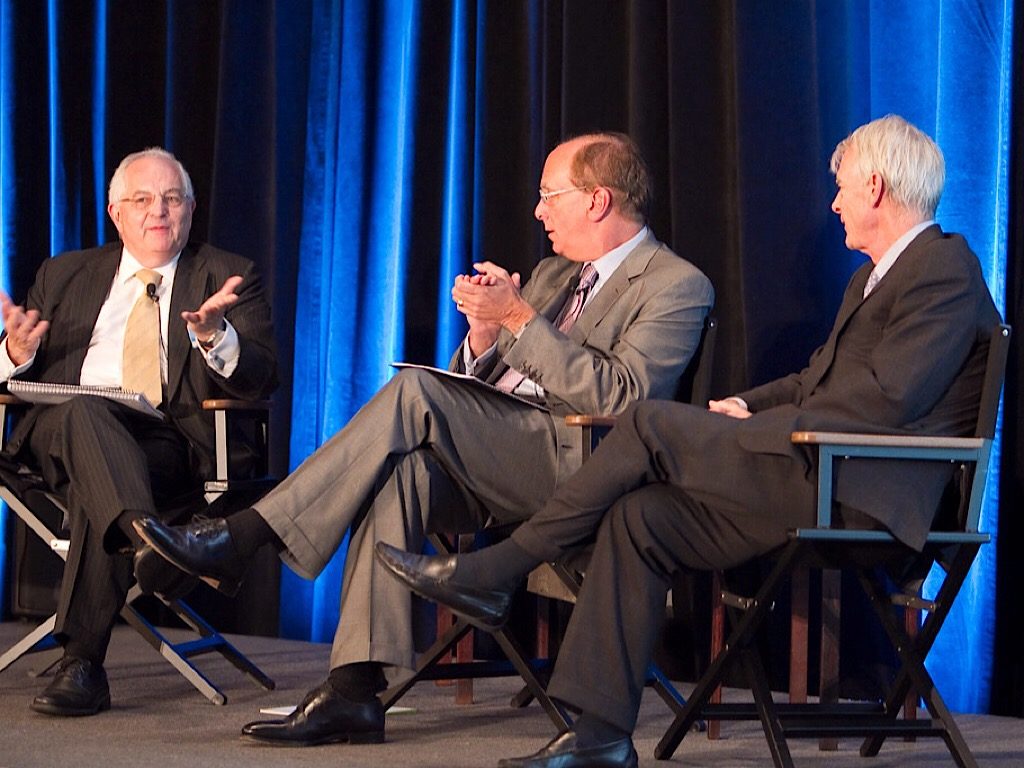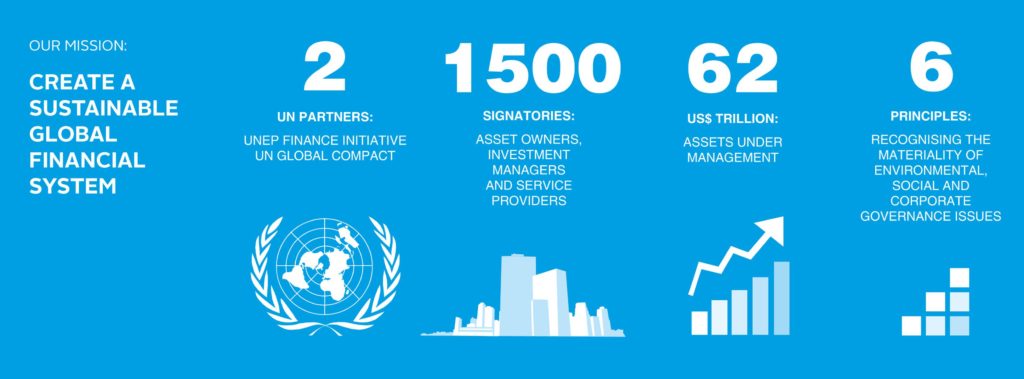7 Mins Read
Long story short? Business leaders and investors are now pricing in climate change because they’re all out of choices.
Ever since BlackRock’s Chairman and CEO Larry Fink published his iconic letter in 2018 calling for greater environmental and social responsibility in business strategies, long-termism as an investment concept has gained traction, buttressed by rising consumer demand for a more conscious form of capitalism. Long-termism represents a new investor & shareholder mentality, one that prioritises environmental concerns, social impact and community building and measures whether growth is sustainable in the long-term.
Given that we are experiencing volatile weather patterns, record-breaking extreme temperatures and significant resource shortages more and more frequently, CEOs and other business leaders can no longer afford to ignore the financial and material cost of climate change to their companies. As Fink states, “every company must not only deliver financial performance, but also show how it makes a positive contribution to society.”
The Search for Long Term Value
While over the past two decades the doctrine of short-termism, aka the pursuit of rapid growth in terms of perceived value to create wealth without regard for future consequences or non-immediate effects (such as environmental ones), has reigned supreme, long-termism represents an alternative mentality that scrutinises whether growth-for-growth’s-sake is necessarily good for the community, society, and the planet.

In a recent board meeting comprised of 60 CEOs from multinational firms, the focus was on switching to long-termism and social good. The questions presented and debated centred not on the speed of wealth or capital creation, but instead how to plan for companies’ ecological footprints and how to develop a sustainable impact strategy. Instead of considering options from quarter to quarter, long-termers are thinking about issues in the next 4, 6 or even 10 years.
Shareholders, for their part, are also increasingly vocal about shifting investment strategies towards long-termism. A growing number of investors and firms that fund businesses are switching to long-termism because it is no longer only about cash, but about assets that will maintain their value well into the future.

The Value of Cathedral Thinking
Cathedral thinking is a design term that codifies a built-in long-term vision- it dates from medieval times, when architects had to design buildings that would not be completed within their own lifetime, thus requiring serious long term forethought. The term has gained traction of late, thanks to 16-year old Swedish climate change activist Greta Thunberg in her April 2019 speech urging the European Parliament’s environmental committee to adopt this mentality.
Business strategies that incorporate cathedral thinking understand how things will shift in the future, and have the foresight to adapt. Given that we are already in the middle of a planetary emergency – consider recent headlines about Arctic wildfires, incessant heatwaves and water stress, microplastic pollution to name a few – future-oriented corporations will inevitably have to evaluate their climate impact sooner rather than later.
Consumers Are Driving Long-Termism
Consumers are voting with our dollars like never before. They are demanding responsibility from companies, whether it be operating with a circular economy in mind, to supporting initiatives that give back to a community cause. Corporate strategies can no longer afford to discount global emergencies such as climate change into the equation. If businesses don’t respond to this demand, they risk becoming irrelevant in an evolving market.
One of the key drivers behind the shift to long-termism is the realisation from investors that companies cannot reach their full potential if they are not purpose-driven, because it will cost them clients and customers. In a recent piece at Entrepeur.com titled “It’s Official, Consumers Prefer Sustainable Companies”, the authors cited a Nielsen study showing that “products with sustainability claims generally outperformed the growth rate of total products in their respective categories.”
Consumers today have heightened expectations of business responsibility and are not afraid to pressure companies to do better. They are demand that companies showcase sustainable innovation, deliver on workforce diversity, show leadership in minimising environmental impacts and contribute to their local community. Without these aspects, businesses over time will be exposed by campaigns from civil society organisations that better articulate the importance of eco-social goals. For instance, a Greenpeace initiative in 2017 that uncovered HSBC’s involvement in Indonesian deforestation through its financing of palm oil industries effectively forced the bank to commit to cutting ties with the irresponsible companies.

Principles for Responsible Investment
Similar to long-termism, responsible investment is a strategy that incorporates environmental, social and governance (ESG) factors in investment decisions in order to manage risk and create long-term returns.
The United Nations’ Principles for Responsible Investment (PRI) represents a useful blueprint for what sustainable investment actually involves and . At the core of the PRI is a framework for green investments and a sustainable financial system that operates in harmony with the target to transition towards a global low-carbon economy.
One of the key considerations that long-termers have to make is whether a company’s business strategy and practices align with recommendations made by the Task Force on Climate-related Financial Disclosures (TCFD). If we are to avoid further climate disasters, it is crucial that companies work to mitigate greenhouse gas emissions and adapt their operations to meet this goal.
The complex nature of climate change requires businesses to make economic decisions that take into account their carbon footprint and resource usage. A report by the United Nations’ Intergovernmental Panel on Climate Change (IPCC) indicates that unprecedented changes are necessary to meet the goals of The Paris Agreement to keep global temperatures down – and businesses are a significant part of this equation.
As it becomes more evident that urgent action is necessary to save the planet, investors are already preparing for a low-carbon economy. This means that companies that meet the low-carbon requirement will have a competitive edge over others.

The Investor Agenda, which was developed for the investor community to accelerate actions critical to fight climate change and adhere to the goals outlined in the Paris Agreement is another long-termist resource. The Agenda has provided a platform to call attention to investor profiles that have called for greater governmental action on climate change, and shed light on initiatives on climate change that long-termed could get involved in. As part of their campaign to incite change, 477 investors with USD $34 trillion in assets urged G20 leaders to stave off a global temperature rise of 1.5 degrees C, which would have irrevocable consequences for the planet. The investors included names like Amundi, California State Teachers’ Retirement System (CalSTRS), Legal &
General Investment Management, Natixis Investment Managers, Mitsubishi UFJ Financial Group, and Sumitomo Mitsui Trust Asset Management and represented a record number of signatories to the Global Investor Statement to Governments on Climate Change.
Training The Next Generation of Sustainable Leaders
Other developments in Asia have also embodied a deeper recognition that sustainable long-term growth in corporate strategies is crucial. Just this year, Singapore Management University (SMU) introduced the first sustainability major course for business students in the region. Over at Hong Kong’s University of Science and Technology (HKUST), students can choose from seven different major and minor sustainability courses including, Environmental Sustainability & Management. The launch of these programmes is reflective of the need for Asian businesses to become more attuned to sustainability matters in order to remain competitive, and for the region to invest in a graduates that have a grasp on the key crises facing the planet today. This is of particular importance in Southeast Asia, where environmental changes and events are often immediately felt in the daily lives of people, and can impact the region’s economy decisively.
One thing’s for sure, the status quo ain’t working. We have got to change how we live and how we consume. Thanks to a renewed appreciation for long term thinking, business leaders and investors now agree, and are changing how they define value, helping to usher in a new age of conscious capitalism.
All images courtesy of Pexels, unless otherwise credited.




